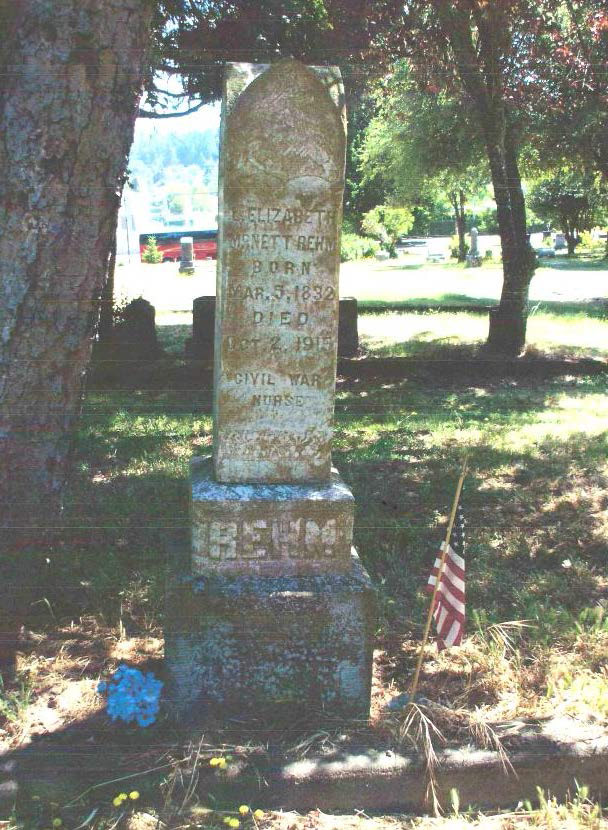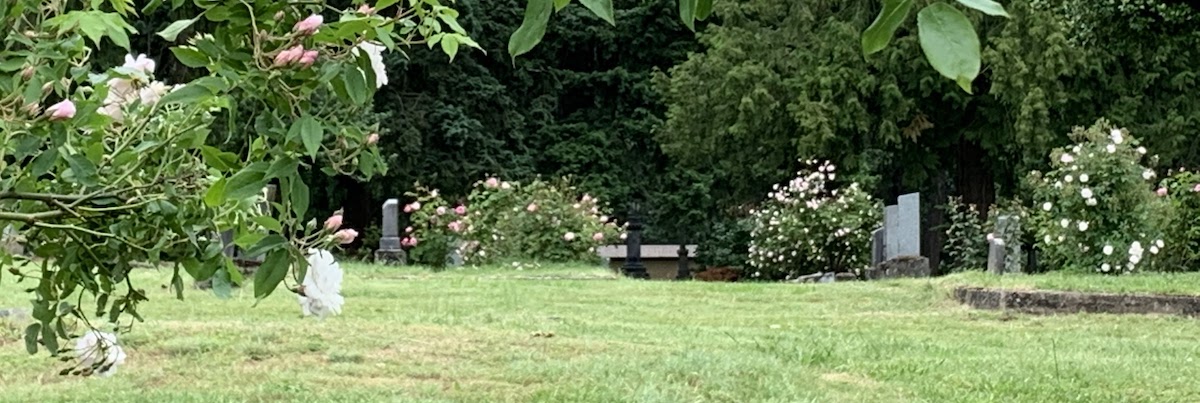Elizabeth McNett Rehm(1832-1915) ─ Helped Establish Eugene Bible College (Now Northwest Christian University)
An early supporter of Northwest Christian College (located north of the University of Oregon campus) Elizabeth Rehm was a Civil War army nurse who benefitted from the first Congressional act to recognize women’s military service in the form of a $12 per month pension.
Born in Netz, New York Rehm was 31 and single when the Civil War began. She served in the U.S. Medical Corps as a nurse. After the war Elizabeth married William Rehm, a farmer who was 18 years her senior. According to U.S. Census records, in 1872 at age 40 Elizabeth McNett Rehm was living in Umatilla, Oregon. The Rehm’s had a young daughter named Maria.
In 1883 Elizabeth became a member of the Women’s Relief Corps –the official women’s auxiliary to the Grand Army of the Republic. After years of effort and persistence from the WRC and Army Nurses’ Association, in 1892 President Benjamin Harrison signed the Army Nurses Pension Act (ANPA) into law. Elizabeth qualified for this quiet milestone in American history: Granting pensions to women based on their own military service rather than that of a husband or son.
The act implicitly acknowledged women’s military service and, to some extent, legitimized women’s financial independence from male bread-winners. Previously, only widows and mothers of deceased soldiers were granted pensions so long as they remained unmarried.
Following the death of both husband and daughter in the 1890s, Elizabeth moved to Eugene and made her mark as an early supporter of Eugene Bible College, now Northwest Christian College. In 1897 the castle-like building Rehm Hall was named in her honor. In later years –from 1907 to 1915 –Elizabeth actually lived in Rehm Hall. She passed away at 1p.m. in its parlor at the age of 84. The presiding President Sanderson said Mrs. Rehm had made extensive gifts to the University during her lifetime.
Today, buried beneath a towering Douglas fir tree, a white marble obelisk marks her grave. Immensely proud of her service, the epitaph reads succinctly: “Civil War Nurse.”

